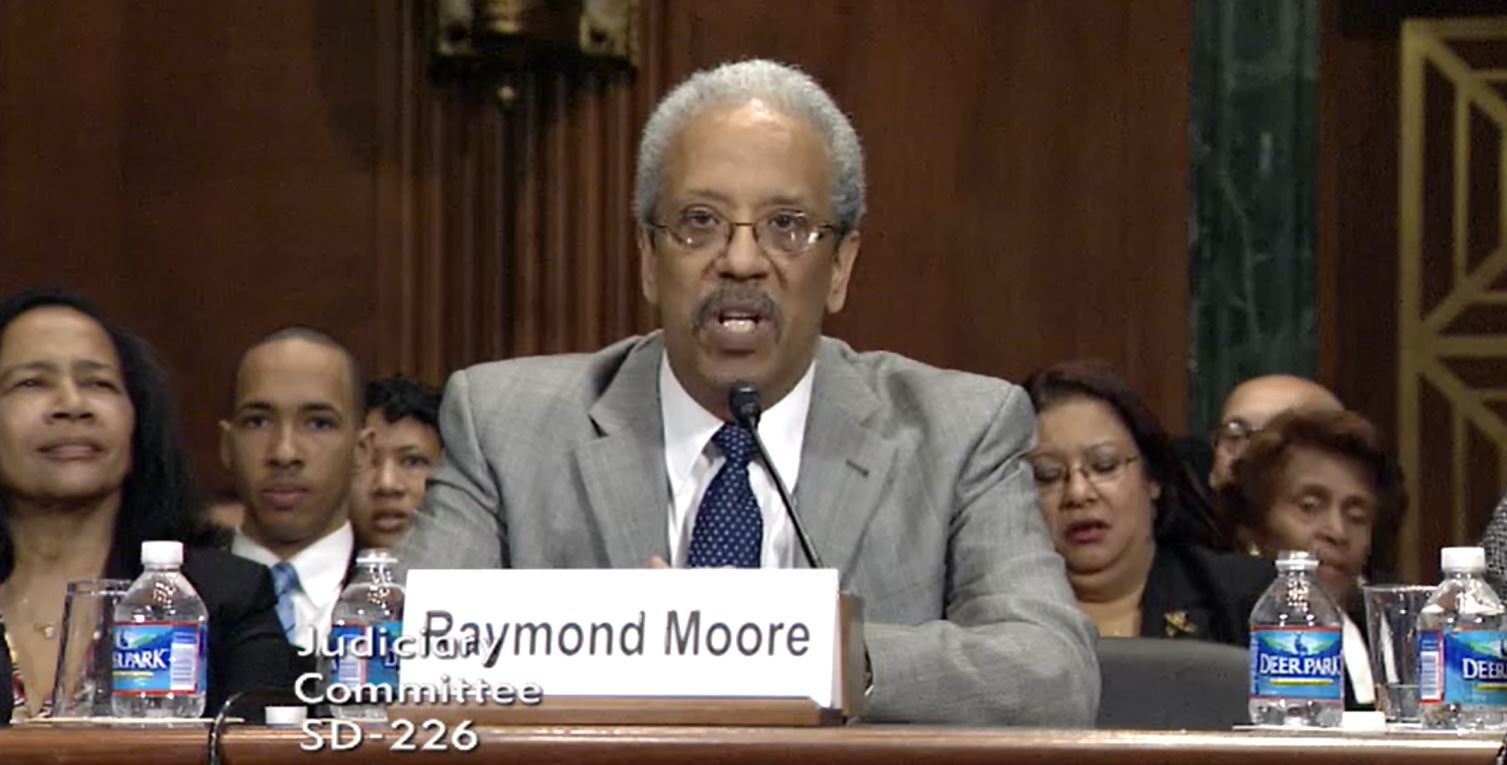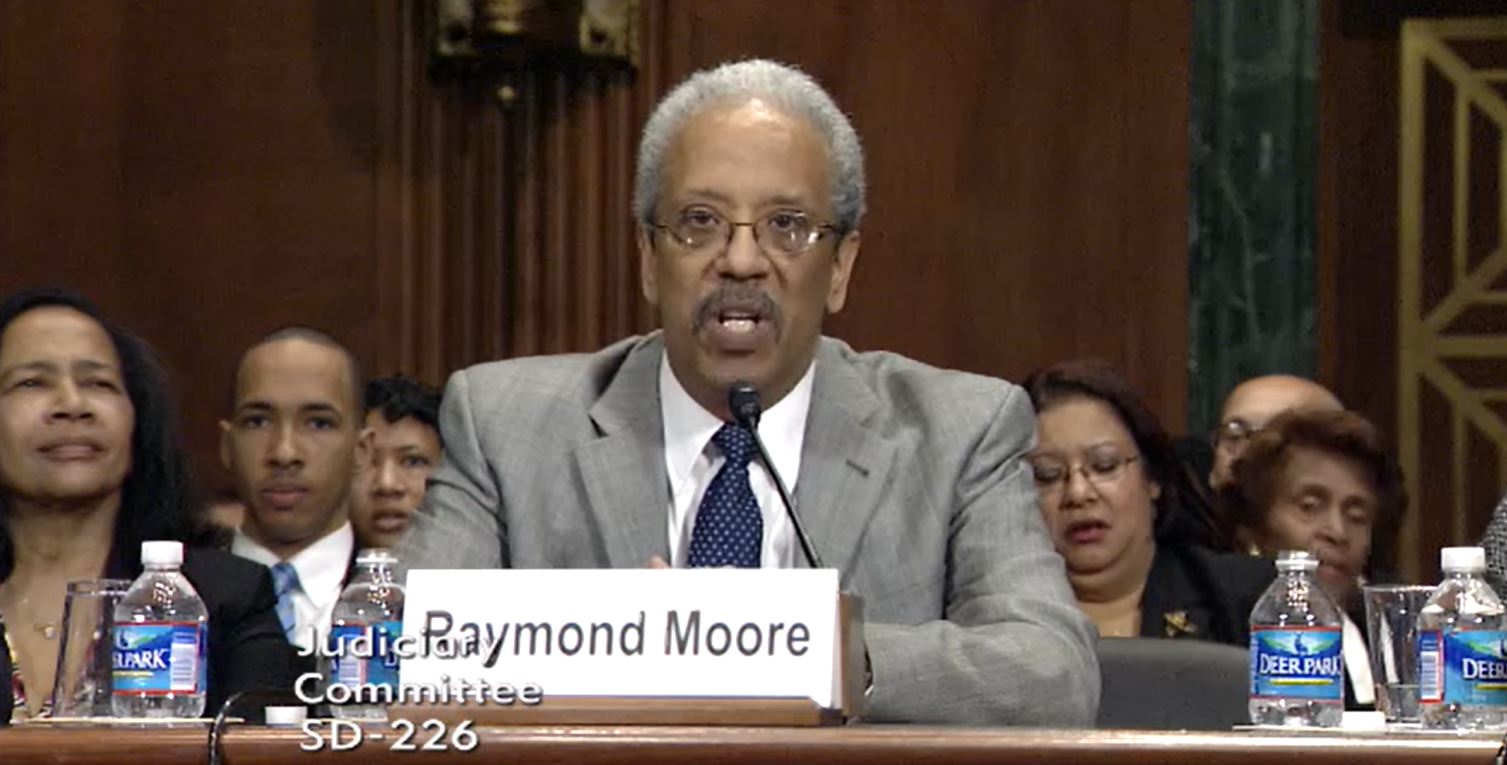Raymond Moore announces retirement, creating judicial vacancy for Biden

U.S. District Court Judge Raymond P. Moore has announced his intention to retire from active service on Colorado’s federal trial court, creating another judicial vacancy for President Joe Biden to fill.
Moore, a 2013 appointee of Barack Obama, will take a form of retirement known as senior status on June 20, 2023. As a senior judge, he will continue to handle cases part time.
The news of Moore’s retirement comes as the White House is considering candidates for another impending vacancy. U.S. District Court Judge William J. Martínez, also an Obama appointee, will transition to senior status in February. Colorado’s two senators have already forwarded their preferred applicants to the Biden administration.
This is now the fifth vacancy Biden will have the opportunity to fill on the seven-member district court. However, the president’s ability to appoint Moore’s successor may depend upon control of the U.S. Senate following the 2022 elections. Bloomberg Law reported in June that if Republicans seize the majority in the chamber, there are indicators they will halt or curtail the confirmation of Biden’s appointees, based in part on the GOP’s behavior during Obama’s presidency.
John P. Collins Jr., a visiting associate professor at The George Washington University Law School who follows judicial nominations, hypothesized the Moore and Martínez vacancies could prompt a deal in which Biden selects a Republican-preferred nominee for one seat while making his own choice for the other. There could also be “a trade for more conservative nominees in red states,” Collins added.
Prior to his appointment, Moore was a longtime federal public defender. He started with the public defender’s office covering Colorado and Wyoming in 1993, and rose to lead the office a decade later. Earlier, he served for four years in the U.S. attorney’s office as a prosecutor and also spent time in private practice.
“Ray grew up in the projects of Boston, in a community that struggled with violence and poverty,” U.S. Sen. Michael Bennet said in introducing Moore at his 2013 confirmation hearing. “Neither of his parents ever completed high school. With determination and drive, Ray rose from those humble beginnings to eventually graduate from Yale Law School.”
Moore, who will be 70 next year, took the bench having tried 25 to 30 cases in federal court, largely in criminal jury trials. Among his clients were greeting card company Hallmark, which was sued for allegedly mimicking another company’s products. He also defended a woman convicted of inserting a syringe into a can of Pepsi at a grocery store, an episode known as the “Pepsi Panic” due to widespread – and largely false – reports of syringe discoveries in Pepsi cans.
John Walsh, who was Colorado’s U.S. attorney for part of the time Moore was the top public defender, recalled debating with Moore in the chief district judge’s chambers about whether defendants could waive their right to appeal a plea of guilty.
“It was one of the most challenging intellectual exercises I ever participated in,” said Walsh, who now litigates cases before the court in private practice. “While we continued with those appellate waivers, we modified them in response to the arguments Ray Moore was making. He’s a brilliant, brilliant guy.”
Since becoming a judge, Moore has handled a number of high-profile issues. In 2014, he found Colorado’s state constitutional ban on same-sex marriage violated the rights of LGBTQ couples under the U.S. Constitution. The U.S. Supreme Court would strike down all such prohibitions on same-sex marriage the following year.
Moore also handled multiple civil cases challenging COVID-19 restrictions and vaccine mandates. He sided with the government’s ability to require vaccinations, in one instance rejecting the claims of unvaccinated medical staff and students at the University of Colorado’s Anschutz Medical Campus.
“It is simply not the case that a medical campus is required to put patients and others in a healthcare environment at risk to accommodate these plaintiffs,” Moore wrote in January of this year.
Currently, Moore is weighing whether to strike down the town of Superior’s recently-enacted ban on assault weapons and related gun safety measures. Last week, he temporarily blocked the town’s ordinance after applying newly-restrictive guidance from the U.S. Supreme Court about when governments may regulate firearms.












